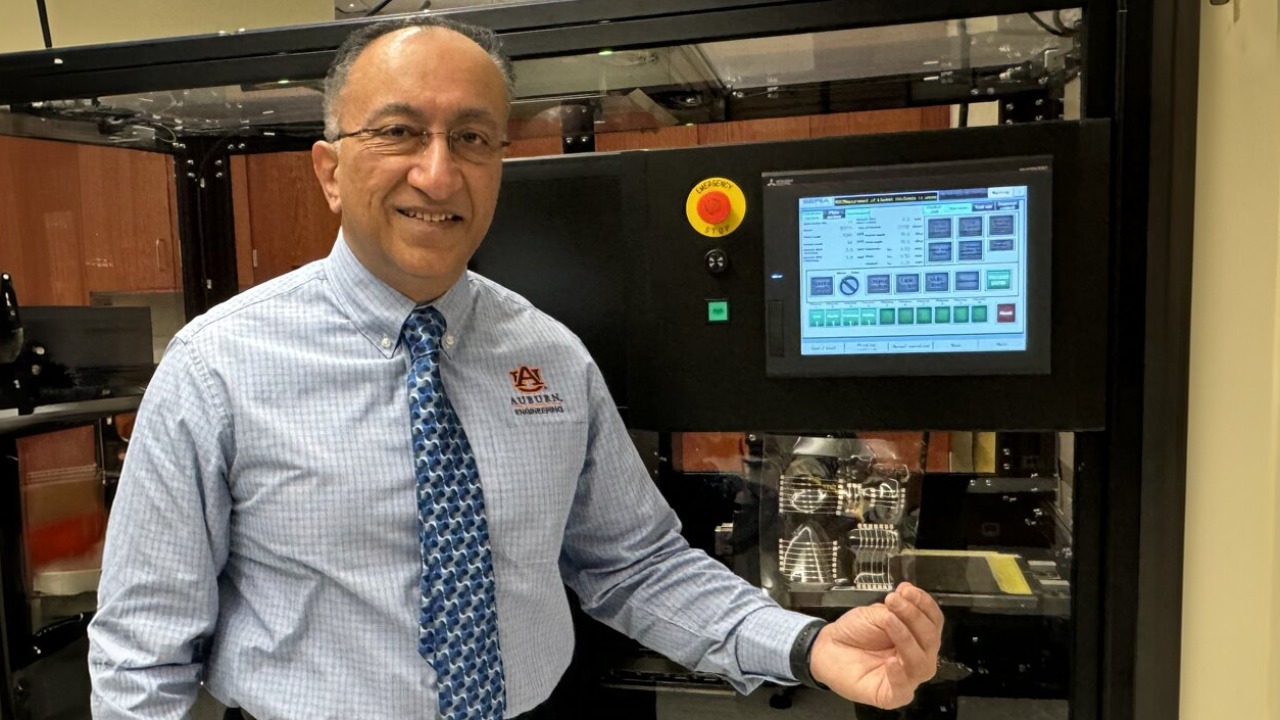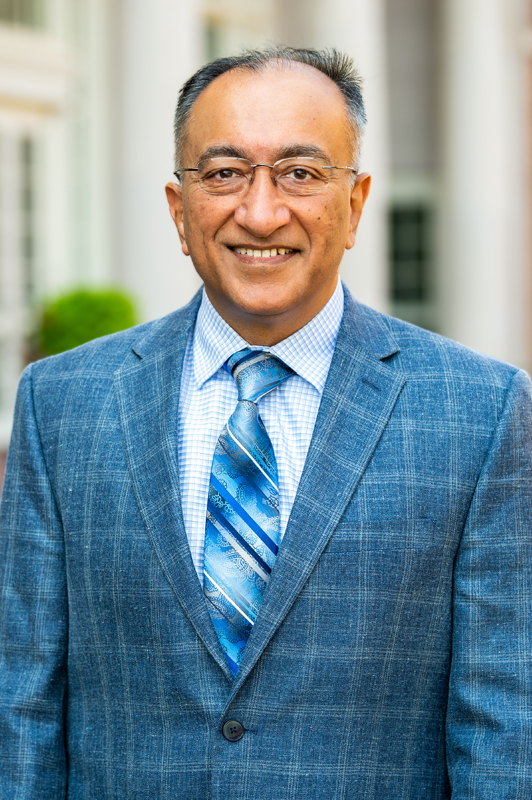Auburn center’s FHE reputation underscored with multiple winning additively manufactured electronics proposals
Published: Feb 19, 2024 10:30 AM
By Jeremy Henderson
If you're trying to gauge Auburn's preeminence in harsh environment electronics resiliency development and flexible hybrid electronics (FHE) research, look no further than the latest project call of the NextFlex National Manufacturing Institute.
In last year’s Project Call 7 competition, there were two winning Auburn proposals. In the current Project Call 8? Three, collectively funded at $2.5 million with 1:1 cost-share — all focused on additively manufactured (AM) FHE, all competitively won by teams led by Pradeep Lall, the MacFarlane Endowed Distinguished Professor and Alumni Professor of Mechanical Engineering and director of Auburn University’s Center for Advanced Vehicle and Extreme Environment Electronics (CAVE3).
Under Lall's 15-year leadership, CAVE3 has grown exponentially. In 2015, Lall led the Auburn team contributing to the winning proposal that resulted in the foundation of the NextFlex National Manufacturing Institute. Auburn is a tier-1 founding member of NextFlex, whose mission is to advance U.S. manufacturing of FHE; Lall serves on the NextFlex technical council and has previously served on the governing council of the institute.
The design of electronics for operation in harsh environments has long been an area of research for both Lall and CAVE3. While earning an international reputation for designing electronics for operation in harsh environments relative to automotive, military, defense, and downhole applications, CAVE3 also accelerated the growth of the flexible hybrid electronics industry itself.
The topic of Lall's first winning Project Call 8 proposal is a perfect example. The $1 million Auburn-led project with 1:1 cost-share aims to use additive manufacturing in developing in-mold flexible electronics reliability for harsh automotive applications with parts and solutions suppliers including John Deere, Toyota Motors, BayFlex, and MacDermid Alpha as partners.
“A large part of the weight of the automotive vehicle is in the form of wire harnesses," Lall said. "The harnesses carry signals from sensors, interfaces and modules to the control units located throughout the vehicles for the purpose of guidance, navigation and control. The wire harnesses alone may contribute almost 200 pounds to the weight of the passenger car. The transition to additive technologies for the replacement of wire harnesses with in-mold electronics will enable size reduction, weight reduction and, thus, reduction of the carbon footprint which has been a key metric for automotive design with increased emphasis on greater fuel efficiency."
Once again, enter CAVE3.
"Our center has a strong, established infrastructure for the additive fabrication of electronics using a number of methods," Lall said. "The current generation of electronics is largely planar. However, greater integration of form and function can be achieved with additively manufactured flexible hybrid electronics through the manufacture of non-planar architectures. In terms of future potential applications of in-mold additive FHE, that's very exciting."
Also exciting? Meeting the growing challenges of sustainability, a long-standing focus of Lall’s research across several technologies, including lead-free solders, low-temperature interconnects, and currently additively printed sustainable electronics — and the ultimate goal of Lall's second winning Project Call 8 project.
Funded at $1 million with 1:1 cost-share, "Biodegradable Substrates Low-Temperature Cure Water-Based Inks Room Temperature Interconnects and Rework for Sustainable Electronics" partners Lall's Auburn-led team with industry partners TapeCon, BayFlex and NovaCentrix.
"Conventional electronics uses plate-and-etch processes for manufacture," Lall said. "The waste streams may contain metals and dielectrics, in addition to other toxic chemicals. Additive manufacturing processes allow for the reduction in the amount of production waste, minimizing the impact on the environment. The earlier generation of additive methods still used volatile organic carrier fluids for the realization of manufactured circuits. The current generation of substrates is not biodegradable and thus contributes to the waste. In addition, the use of higher temperature processing requires high energy consumption for production processing."
In the third program, Lall's team of Auburn researchers will serve as a major subcontractor for Boeing. Titled "Additive Die Packaging for Cryogenic and High-Temperature Operations," the project is funded at a cost of $500,000, including 1:1 cost-share.
“Electronics packaging has been identified as a critical technology for the continued progression through heterogeneous integration," Lall said. "A number of harsh environment applications often need a high mix and low volume of modules for specific applications. Traditional electronic packaging manufacturing techniques require expensive hard tooling that needs a high volume to allocate the upfront cost of installed infrastructure. The use of additive manufacturing methods allows accommodation for high-mix, low-volume designs and opens up new possibilities for launching new products that may not exist in the current state-of-the-art manufacturing methods."
As for the application and broader impact of the program?
"Well, it aligns with the national emphasis of the packaging in the Chips Act with the establishment of the National Advanced Packaging Manufacturing Program (NAPMP)," Lall said. "There is a dearth of high-volume packaging manufacturing capabilities in the United States. Access to additive manufacturing processes for packaging solutions will allow the re-entrenchment of a critical portion of the electronics manufacturing supply chain onshore”.
Lall expects the three programs to also benefit CAVE3's leading work toward developing FHE reliability standards.
“We are honored and excited," he said, "to have an opportunity to work on these forward-looking programs that will be impactful on the future of electronics manufacturing."



